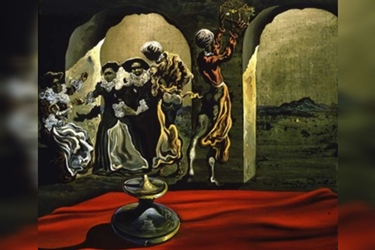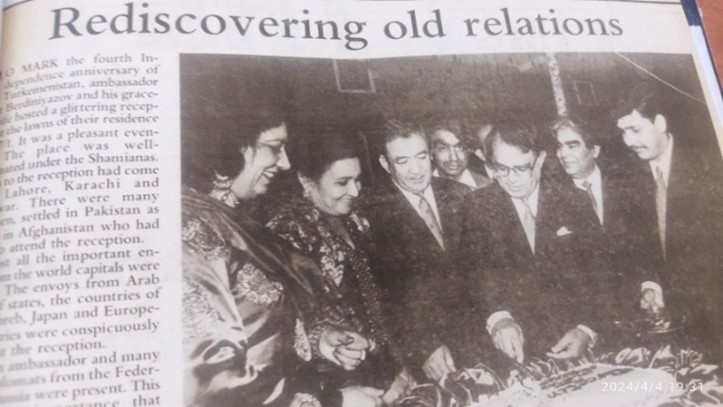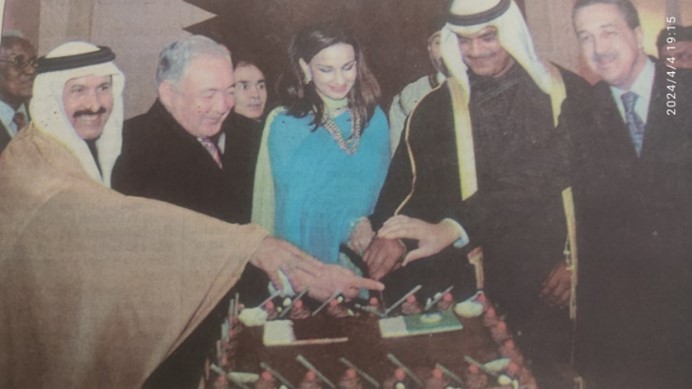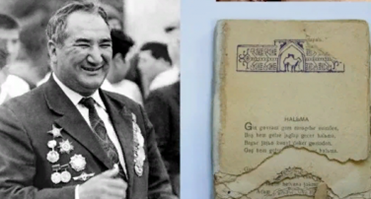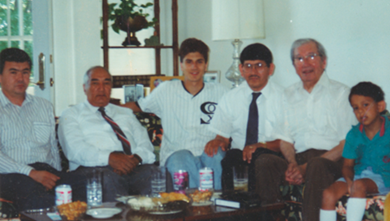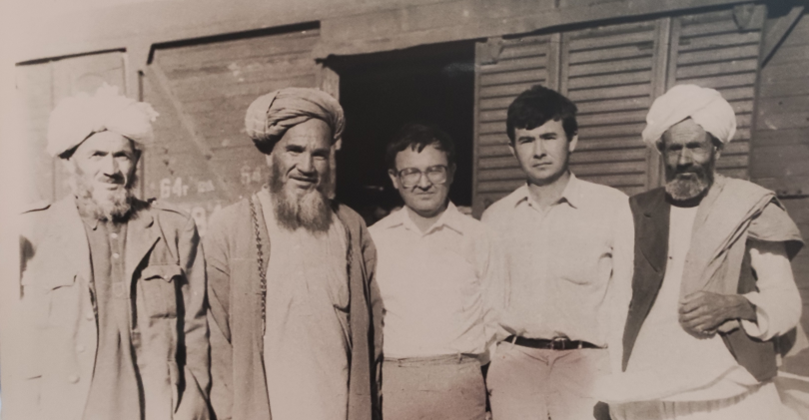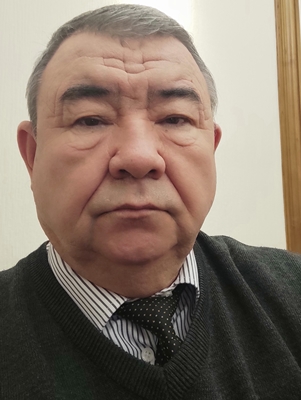Dr. Begench Karaev
The National Leader of the Turkmen People, Chairman Halk Maslakhaty of Turkmenistan Gurbanguly Berdimuhamedov, in his speech at the third Antalya Diplomatic Forum ( Antalya , March 1, 2024), drew attention to a very effective aspect of diplomacy and international relations of our time. In particular, he emphasized: “The current situation in the system of international relations poses a number of serious questions that affect, in fact, not only politics, economics and law, but also ethical, judicial relations and relations of honor and dignity.”
“I believe that today these definitions cannot be considered in isolation,” continued the National Leader of the Turkmen people, “They are united, and therefore, in order to maintain political security, sustainable and economic development, it is necessary to maximally involve the peoples and states of the planet, regardless of the historical role, population size, volume gross domestic product, military potential or level of technological development. Their legal rights should be affirmed in order to become a member and subject of the modern and future world order.”
Against the backdrop of the increasingly complex global situation in the current century, the indicated idea sounds like a unique call to the elite of world politics and economics, to all those who have a certain influence on the adoption of geopolitical decisions and the formation of positions on current issues on the universal human agenda.
The novelty of the idea of the National Leader of the Turkmen people is noted by a veteran of the diplomatic service, awarded many state awards, Sapar Komekovic Berdyniyazov, who draws attention to the call for maximum involvement of the peoples of the planet, along with states, in maintaining peace and security. “This is a new word in world politics,” notes the veteran diplomat, “for until now the issue of maintaining peace and security was assigned to the responsibility of the state, as the main subject of international relations. Of course, now there is a need to re-analyze the role and meaning of the well-known concept of public diplomacy.”
As is known, in the history and theory of international relations there is a concept of so-called “civil diplomacy”, which means the activities of educational, cultural, sports and other institutions, as well as authoritative individuals. This concept covers many activities that are not related to government diplomacy. It also has such branches as public diplomacy, business diplomacy, people diplomacy, scientific diplomacy, cultural diplomacy, digital diplomacy, cricket diplomacy, checkbook diplomacy, etc. From the pages of recent history of the 70s of the last century, it is known that Henry Kissinger shrewdly used the popularity factor of table tennis in relation to China. As a result, the term “ping-pong diplomacy” appeared, the use of which largely marked the beginning of a warming of relations between the then seemingly irreconcilable United States and China.
The famous American researcher J. MacDonald in his work “ Conflict Resolution: Track Two Diplomacy ” defined the essence of civil or people’s diplomacy as its focus on “reducing the intensity of conflict or its complete resolution, both domestically and internationally, by reducing existing hatreds and tensions in relations through facilitating communications and improving understanding of the points of view of both sides.”
The history of the Cold War also shows that public diplomacy was one of the effective tools for softening relations between opposing great powers and beginning the process of mutual understanding. There are many facts confirming that people who are not professional diplomats, but very authoritative among the people and society, played an important role in bringing the end of the Cold War closer. According to the authors of the study “The Role of Public Diplomacy in the End of the Cold War,” the bloc confrontation ended not only with the efforts of professional politicians who signed interstate agreements, but also “thanks to the activities of private individuals who contributed to improving the image of Russians in the United States and Americans in Russia… They demonstrated by their example “that behind any American or Russian there is, first of all, an ordinary person.”
The history of the Turkmen people is rich in magnificent examples of public diplomacy, for they have been the main form of political communication of the nation with the outside world since the fall of the Great Seljuks.
Speaking about the medieval history of statehood in the East, we note that the last emperor on Turkmen soil was the legendary Jalaleddin, who showed worthy resistance to the Mongol invaders. According to legend, even Genghis Khan himself, having seen the heroism in the battles against the Mongols and the courageous retreat of Jelaleddin from the enemies at the end of the battle near the Indus River on November 24, 1221, sincerely exclaimed: “This is how a father should have a son!”
The political timelessness that followed the loss of statehood of the Turkmen people lasted almost eight centuries and was interrupted when Turkmenistan declared its independence in 1991. The phenomenal strength of the national spirit is evidenced by the fact that the Turkmens, over such a very long historical period, held on with dignity and managed to retain their vast territory of residence. Thanks to the art of public diplomacy, without having their own independent state, the Turkmens played a key role in the geopolitics of Central and South Asia, and the Middle East as a whole. Here I focus attention, first of all, on the history of that part of the people who did not emigrate and remained to live on the territory of their ancestral homeland, while maintaining their originality and organicity with the ecumene in the harsh conditions of the geographical and geopolitical landscape.
The critical era for the self-preservation of the ethnos, so to speak, a kind of bifurcation period, came in the period of the 18th-19th centuries, when the most difficult period in the history of the Turkmen people was observed. Here it is necessary to pay attention to the fact that the creativity and practical activities of the great son of the nation, the philosopher-thinker Magtymguly Fragi had a huge impact on strengthening the national spirit of the Turkmens, their determination to defend their lands and create an independent statehood, whose 300th birthday is being celebrated nationally and internationally this year.
Esen Aydogdyev, Ambassador Extraordinary and Plenipotentiary of Turkmenistan to the Russian Federation, Doctor of Historical Sciences, in his recently published article on the pages of the authoritative magazine “International Affairs,” especially notes the objective historical, geopolitical and geographical conditions that determined the active use and improvement of forms and methods by our ancestors, as well as tools of public diplomacy. At the same time, he emphasizes the enduring significance of the works of the great poet Magtymguly Fragi, which “represent a chronological encyclopedia, describing systematically and in detail the political and economic events that took place in the middle and second half of the 18th century on the territory of Turkmenistan and in neighboring countries.” Here we can agree with the author that Magtymguly’s legacy is becoming increasingly relevant in the context of the analysis of events and the modern era, which helps to understand the essence of many current problems of humanity, including world and regional politics.
Reading the works of Fragi, in many ways one can trace the logic of the geopolitical vicissitudes of the 17th century, especially in terms of the attractiveness of the geographical landscape, including the seemingly paradoxical splendor of the harsh Karakum. For Magtymguly, the Karakum is a sacred steppe for the Turkmen, who, like a mother, protects, preserves and raises her children. In fact, the great poet described the nature of our region as a gift from the Almighty, since it contains all the attributes from all over the earth – sea and rivers, desert and mountains, cloudless sky and magnificent spring, harsh arctic winter and hot equatorial summer. And autumn is a special, fertile period, which was sung by almost all poets of Turkmenistan.
From the second mid-seventeenth century, by the will of fate, the heroic people found themselves more than ever at the crossroads of fierce clashes and endless wars waged by regional rulers. And later, at the end of the 17th and beginning of the 18th century, the British and Russian empires entered the theater of geopolitical and military-political battles, being the main forces that had a radical influence on the development in this region of Asia.
To be more specific, with the end of the Napoleonic wars in Europe, the gaze of the symbolic Lion and Bear turned towards Central Asia, Afghanistan and Persia, which, against their will, turned out to be a kind of testing ground for the subsequent almost century-long battle between the strongest diplomats and intelligence officers in the world.
It was then that the Turkmen lands became the object of close and scrupulous study by the great powers. Their most experienced diplomats and scientists, military and political agents often visited and explored the territory of Central Asia under the guise of travelers, traders or dervishes. The archival materials contain their travel records, messages, reports and dispatches containing historical and analytical information about the Turkmen people, their traditions and living conditions, habitat, etc.
A special subject of careful study for foreigners was the ability of the Turkmens not only to survive in harsh desert conditions, but also the ability to create invaluable examples of the creative potential of humanity. In particular, the magnificent Akhal-Teke horses and world-famous carpets and carpet weaving products are world heritage and civilizational treasures. Among the Turkmens, the two-stringed musical instrument dutar turns into a real one-person theater, capturing the hearts and souls of listeners and spectators. Thanks to the oral creativity of folk performers and storytellers – bakhshi – immortal epics about Gorogly and other heroes of the Turkmen people have reached us. Foreign travelers in their travel writing note the amazing coherence of intra-social and family relationships, the high level of adaptation of nomads to harsh, if not cruel, conditions of lack of water and heat. Of particular interest were the compactness and stability of dwellings, simplicity of life and nutrition, methods of obtaining and storing drinking water, and traditions of keeping and caring for horses and other domestic animals. The optimism of the Turkmen always prevails in the face of life’s adversity, and faith in the best and in one’s own strengths has always supported the high spirit of the people, who largely lived in those days in constant confrontation with foreign invaders.
The brother of the Scottish poet Robert Burns, an equally famous participant in the Great Game, British Army captain Alexander Burns wrote about the Karakum: “Other deserts are insignificant compared to this boundless ocean of sand. I can’t imagine a more terrible sight than this desert.”
There is no doubt that, without having their own independent statehood, the Turkmen still managed to influence the development of the then geopolitical situation in the region. As a result of this, the presence of the “Turkmen factor” greatly contributed to preventing the scenario of the then Great Game in Central Asia from turning into an equally large-scale war.
Speaking about the Burns brothers, I cannot help but cite an episode from the memoirs of the respected senior friend and mentor, veteran of the diplomatic service Sapar Berdyniyazov. This episode is very closely related to informal communication and can be an example of the effectiveness of public diplomacy in establishing mutual trust.
As Sapar Komekovich notes: “…from the history of international relations and world politics it is clear that during periods of major confrontations, including large-scale wars, in the corresponding region or even continent, a kind of patch is formed, free from conflicts and battles. For example, such a role was assigned to Switzerland in the center of Europe at the height of the Second World War.”
As the Cold War period ended and the subsequent growth of conflict potential in the Near and Middle East, the contours of such a “patch” began to be outlined in the eastern part of the Arabian Peninsula – where the “oil and gas tigers” of the Gulf were then dynamically rising and approaching the zenith of prosperity. As they say at the beginning of the story, it happened in Dubai in the first half of the 90s of the last century. In one of the luxury hotels, where during the lunch break of the conference, a small circle of scientists, diplomats and representatives of the business world gathered separately to discuss current issues of peace and security.
The first to speak at the set table was the Scottish co-owner of a large oil company in the Middle East, who announced that he would begin his speech by quoting the national poet Robert Burns. When all the attention of those present was focused on the Scot who had paused, the poetic lines “A Red, Red Rose” suddenly sounded from the other end of the table” by the world famous poet – in the original, but with a slightly noticeable Turkmen accent.
My love is like a red red rose
That’s newly sprung in June;
O my Love’s like the melodie
That’s sweetly play’d in tune;
As fair art thou, my bonnie lass,
So deep in love am I;
And I will love thee still, my dear,
Till a’ the seas gang dry;
This caused extreme surprise to the native of the land of the glorious Scots, who came up and hugged Sapar Berdyniyazov with words of sincere admiration and gratitude. This event once again demonstrates the immutable value of human relations and the need for a well-read diplomat. Subsequently, this meeting gave impetus to the then growing interest in Turkmenistan, and an increase in offers from well-known British companies for cooperation and investment.
The practice of diplomacy shows that official meetings and negotiations constitute only the tip of the iceberg, and painstaking and comprehensive preparatory work is carried out quietly and incessantly. Here, the personal communication of the ambassador with both representatives of the authorities of the host country, and authoritative scientists, public and creative figures, as well as with those who are interested in a fruitful business partnership is very significant.
Friendly and relaxed communication at the eastern dastarkhan sometimes helps to clarify and resolve seemingly complex issues that are not immediately amenable to the official level of diplomatic relations. Therefore, the thoughtful formation of a unique platform of public diplomacy can serve as a good support for preparing and maintaining mutual relations between countries through trade, science, culture, sports and many other important areas.
It must be frankly admitted that Sapar Berdyniyazov, being the Ambassador of Turkmenistan to Pakistan, always had access to meet with officials of the foreign policy and other departments of this country without problems or delays. The basis for this was largely the solid authority of the high-ranking Turkmen diplomat in the host country and widely established trusting ties throughout virtually the entire hierarchy of government and society. To this it should be added that he visited all the provinces and major cities of Pakistan and won friends and acquaintances, communication with whom gave additional impetus to their very respectful and positive attitude towards Turkmenistan and the Turkmen people.
On one of the pages of his biographical summary there are two meager lines: “1977-1983 – Pakistan – long business trip” and “1985-1989 – Afghanistan – long business trip.” Both of these missions took place during the difficult period of the rise of the then Cold War. This largely explains the special working conditions of a diplomat in these countries. As Sapar Komekovich says, before the introduction of a limited contingent of the Soviet army into Afghanistan, the relations of the then Soviet Union with Pakistan were at a historical maximum. While in Karachi, he watched as representatives of many Soviet institutions literally flooded the city. Journalists from various publications, various kinds of specialists, representatives of culture and education, etc. were accredited here. In addition, in the 70s, with the help of the USSR, the largest Karachi Metallurgical Plant in Asia was built – Pakistan Steel, with a capacity of up to 2.2 million tons per year.
In the host country, where key positions in politics and administration were under the control of military generals, it was very difficult to form a favorable perception of the then Soviet state. The fact was that the West dominated here throughout the entire period of the Cold War, and naturally, Pakistan’s rapprochement with the leading state of the Eastern Bloc was not welcomed.
The then President of Pakistan, General Muhammad Zia-ul-Haq, with the entry of Soviet troops into Afghanistan at the end of December 1979, allowed the American authorities to use Pakistan as a logistics base for the Afghan resistance movement. A significant number of Pakistani intelligence officers were involved in transporting weapons and equipment to mujahideen transfer points. Captured Soviet soldiers were kept in Mujahideen camps in Pakistan, some of whom died in captivity. According to expert estimates, without Pakistan’s assistance, the Mujahideen’s resistance would have been doomed to failure.
However, President and General Muhammad Zia-ul-Haq was killed in a mysterious crash of an aircraft he had boarded and flown to attend an event with the US Ambassador, who also did not survive.
Consul Sapar Berdyniyazov made a lot of efforts to use the methods of public diplomacy to win the sympathy of public figures and representatives of other sectors of the country. This was very important during the period of significant deterioration in relations between the then Western and Eastern blocs in the context of the aggravation of the Cold War. The friendly and trusting contacts established by Berdyniyazov in the 70s and 80s in the South Asian region subsequently significantly helped him in his diplomatic work in Islamabad as the Ambassador of Turkmenistan to Pakistan.
One day, at the residence of the Turkmen ambassador, whose doors were always open to friends, over a cup of tea Sapar Berdyniyazov accidentally made a discovery for himself. General Mirza Aslam Beg, the former chief of staff of the Pakistani army, who in retirement became a well-known columnist for major publications, gently and as if apologetically informed the Turkmen diplomat that he knew him from his time working in Karachi. At the surprised glance of Sapar Komekovich, the general replied that at that time the area of operation of the Soviet consulate was within his area of responsibility as an officer of the Pakistani intelligence services. Both then limited themselves to a smile and left this remark without comment. But Mirza Aslam Beg has done and continues to do a lot to fully support friendly Pakistani-Turkmen relations, contributing to this noble cause.
In “Track Two Diplomacy” in analytical circles, we should remember its bright and talented representatives from the Turkmen people. A striking example of one of these personalities is the famous writer and publicist, participant in the Great Patriotic War, awarded many military awards, laureate of the international Magtymguly Prize, Seyitniyaz Ataev (1924-2010). Order of the Red Banner and Red Star, and especially the Order of Alexander Nevsky on the chest of Honored Elder Seyitniyaz Atayev speaks volumes, for he walked along the roads of the Great Patriotic War and ended it on the banks of the Elba, being the chief of reconnaissance of the regiment.
A unique copy of a collection of poems by Magtymguly Fragi is kept in the State Museum of the State Cultural Center of Turkmenistan. The phenomenality of the exhibit is that thanks to it, officer Seyitniyaz Ataev remained alive during the war. In one of the fierce battles, the book literally saved a soldier’s life: Seyitniyaz discovered a bullet mark on the book. From that moment on, Magtymguly’s collection of poems became Seyitniyaz Atayev’s talisman, who later became a prominent public figure, writer, publicist, linguist, translator, prose writer, screenwriter and documentarian.
The film “No Death, Guys!”, filmed according to his script, is a fictional narrative of a real episode of military operations at the front, when the soldiers of Seyitniyaz Atayev managed to surround and capture a large group of fascists. To this we also add that such titles of his films and works as “Baghdad Meetings”, “Travel to India”, “Turkmen Gate to Delhi”, “My Interlocutor is an American”, “Reflections after Seeing Off a French Friend” and others give away another an important aspect of Seyitniyaz Ataev’s selfless service to his homeland. He worked for a long time as a member of the board and Chairman of the foreign commission of the Union of Writers of the Republic, Deputy Chairman of the Turkmen Solidarity Committee of Asian and African Countries, Chairman of War and Labor Veterans of Turkmenistan.
Heading large public organizations, he actively and almost until the last years of his life took an active part in establishing and strengthening international relations with the peoples of other countries through the so-called “soft diplomacy”.
I was lucky enough to be with him during one of his last trips abroad, that is, to the USA in the early 90s, where a number of very useful meetings were held in the name of expanding foreign support in strengthening the independence of his native Fatherland. His charm conquered everyone he met. This was a real example and a practical lesson in winning friends for one’s country.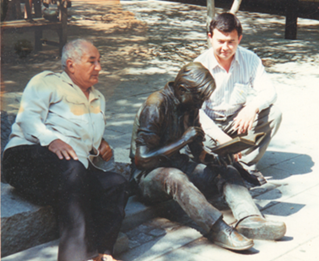
Seyitniyaz Atayevich created stories on the go, in particular, he once staged a kind of comic dialogue with a sculpture of a reader installed in one of the boulevards in New Jersey.
Speaking about representatives of the Turkmen school of public diplomacy, I cannot help but remember a true comrade, a talented writer and television journalist Amangeldi Shikhliev, with whom I had to go on business trips abroad in the southern direction. Being surrounded by local elders, Shikhliev knew how to win their hearts with magnificent literary and historical stories about the ancient roots of neighboring peoples. He managed to create such an atmosphere of communication, thanks to which we were overcome with the feeling as if we had known each other for a long time. Our Afghan friends also admitted this.
In conclusion, I would like to return to the speech of the National Leader of the Turkmen people at the third Antalya Diplomatic Forum, where the idea of humanizing international processes was initiated, which will become the basis for a common understanding of the essence of procreation of humanity on our planet. “At the beginning of my speech, I mentioned ethics, justice and honor,” Hero- Arkadag said then. “These norms, in my opinion, are dictated by everyday concern for the humanization of the development of international relations and for people. And modern diplomacy in this context should adhere to a high humanistic course, take on the function of a regulator of interpersonal relations, interaction between youth and children, through women’s organizations, inter-parliamentary, cultural and sports partnerships, since today they are of particular importance and contribute to reducing the degree of political misunderstandings and mistrust in international affairs.”
These wise words contain the quintessence of the ultimate goal of world politics and interstate relations, where, along with building up official ties, the experience and practice of public diplomacy, or as it is commonly called “Track Two Diplomacy,” can make a significant contribution.
Dr. Begench Karaev deals with the problems of philosophy of law and politics. He is the author of a number of textbooks and monographs, including “Political analysis and strategic planning”, “Political analysis: problems of theory and methodology: (Experience in the study of modern Central Asian society)” and “Traditional and modern in the political life of Central Asian society (experience of political analysis)”. /// nCa, 6 April 2024
